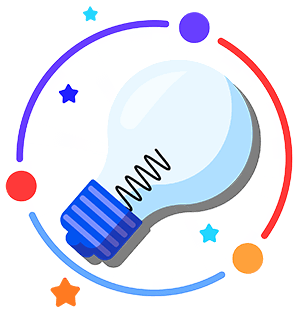
3 Ways ABCmouse Reduces Summer Learning Loss
Discover the academic tool that can give elementary learners a boost.
What Causes Summer Learning Loss?
After a year filled with early mornings and daily homework, a long summer break can seem like the perfect reward for elementary students. However, during this time, children from low-income families generally encounter unequal educational and enrichment opportunities compared to their more affluent peers. Often referred to as summer learning loss, summer setback, or summer slide, a decline in academic skill and knowledge over an extended vacation is common for all students.
However, for many, the end of a school year also means an end of access to educators, meals, books and supplies, computers, and organized activities.
Likewise, camps, classes, field trips, and extracurriculars that keep young minds active tend to be out of reach for low-income communities. Limited summer learning experiences create barriers to student success and contribute to an ever-widening achievement gap.

The ABCmouse Summer Learning Loss Study
To tackle the huge divide in seasonal learning rates, the philanthropic initiative Schmidt Futures examined the potential for ABCmouse to support learning at home. The educational experts at the nonprofit agency WestEd also partnered with Age of Learning’s in-house Efficacy Research team. (You can see the full survey results here.)
How We Recruited Parents and Students for Our Study
In June 2020, ABCmouse invited all of its active users to complete a parent survey and have their children take a pre-assessment. Fast-forward to late August, we again asked active users (including those who missed the pre-assessment) to share their feedback on the parent survey. We also requested that their children complete a post-assessment. Here’s the turnout:
- 6,044 children completed the pre-assessment
- 14,489 children completed the post-assessment
- Average student’s age was 5.19 years
- Most participants were 4.6–6.5 years
- 5,990 parents submitted the survey

ABCmouse Assessment Center in Action
We tapped into the ABCmouse Assessment Center to measure the learning progress among students. The digital platform features thousands of standard-backed assessments across preschool, prekindergarten, kindergarten, first, and second grades.
Here’s a closer look at the skills we evaluated:
| Literacy | Math |
|---|---|
| ✓ Picture vocabulary ✓ Upper- and lowercase letter identification ✓ Rhyming words ✓ Beginning and consonant sounds ✓ Replacing sounds in words ✓ Verb tenses ✓ Root words ✓ Singular and plural nouns ✓ Subject-verb agreement ✓ Prefixes and suffixes ✓ Adjectives and adverbs ✓ Reading comprehension | ✓ Recognizing numerals 1–25 ✓ Counting objects 1–20 ✓ Comparing quantities and sizes ✓ Recognizing 2D shapes ✓ Adding numbers up to 100 ✓ Subtracting numbers up to 100 ✓ Comparing numbers ✓ Identifying place values ✓ Reading data and graphs ✓ Partitioning and fractions ✓ Estimating length |
The study used data from all 20,533 children who completed a pre- or post-assessment. However, because most students only submitted one assessment, we applied the multiple imputation, then deletion (MID) technique to accurately account for any missing scores.
Factoring in demographic variables and ABCmouse usage, the MID method found that, on average, children used ABCmouse for 53.53 minutes per week and completed 11.75 Learning Activities per week over 10–11 summer weeks.
3 Ways ABCmouse Helps to Prevent the Summer Slide
As part of ABCmouse’s Efficacy Research Team, Age of Learning Senior Director Dr. Hee Jin Bang and Senior Research Analyst Dr. Kenneth TaeHan Lee compiled an in-depth brief of evidence and results from the study. Let’s unpack some of their key findings:
- Spending time on ABCmouse can prevent summer learning loss
The team saw a link between how often students engaged with ABCmouse and how well they tested. According to Dr. Bang and Dr. Lee, “Using ABCmouse for at least 45 minutes and completing 15 Learning Activities across at least three separate days per week can increase learning and minimize summer learning loss.” In other words, consistent time spent on ABCmouse, spread over a period of time, leads to better retention and higher scores.
“Using ABCmouse for at least 45 minutes and completing 15 Learning Activities across at least three separate days per week can increase learning and minimize summer learning loss.”
- More time on ABCmouse equals more learning—even free play!
To better understand children’s different learning experiences using ABCmouse, the researchers compared scores of students on the structured Step-by-Step Learning Path versus those in unstructured Learning Activities. It turns out that any form of engagement on ABCmouse positively impacted test performance. “The more children use ABCmouse—whether by completing structured lessons or free play activities— the more they learn,” explained Dr. Bang and Dr. Lee.
“The more children use ABCmouse—whether by completing structured lessons or free play activities— the more they learn,” explained Dr. Bang and Dr. Lee.
- ABCmouse can help close the learning gap
To understand what role usage level had on ABCmouse participants, the team created a low and high usage group. The results were impressive. Dr. Bang and Dr. Lee found that “Regular ABCmouse usage can help children of all skill levels, particularly those who start the summer with low skill levels, catch up to their higher-skilled peers by summer’s end, closing the gap by up to 87 percent.”
“Regular ABCmouse usage can help children of all skill levels, particularly those who start the summer with low skill levels, catch up to their higher-skilled peers by summer’s end, closing the gap by up to 87 percent.”
What Results Did Parents See?
More than 80 percent of parents surveyed reported that since using ABCmouse, their children were more motivated to learn and were more independent in completing Learning Activities. They also saw increased motivation to learn topics seen on ABCmouse—a big win for those struggling to keep their students interested in learning all summer long.

84% of Parents Saw Better Motivation and Independence

Additional Resources
ABCmouse has many resources and games designed by early education experts to help your child stay engaged and learning all summer long:
ABCmouse Library
Check out our vast book selection for preschoolers through second graders. Find mysteries, fables, nonfiction, and educational books, many of which have an audio version.
Browse →
Printables and Worksheets
Children can engage with reading and math worksheets designed for preschool through second grade. Just download and print!
Browse →
Educational Games by ABCmouse
ABCmouse offers hundreds of educational games to help children continue learning through play.
Browse →
These resources offer a blend of interactive games and educational content that can make learning addition a fun and rewarding experience.
ABCmouse’s expert advice review process:
Our team of ABCmouse Curriculum Experts, made up of talented professionals in early childhood education and development, take a close look at educational content and learning claims. They put in the effort to make sure our information is accurate and current. We have a certified educator or another respected authority review the content, matching their expertise with the topic at hand. They’ll make sure the content is thorough and follows the latest research and educational guidelines. If they think we can make things even better, they’ll chat with our editorial team, and we’ll make those improvements right away. Only after a reviewer gives their thumbs-up does a piece of content get the official stamp of approval in the byline.
